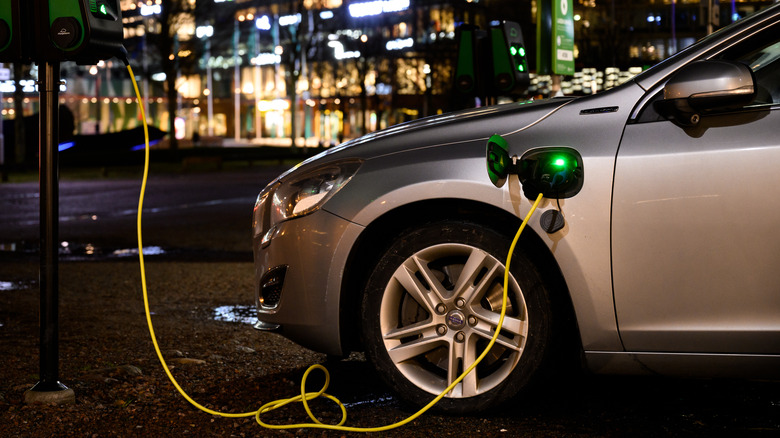Canada Pushing For Electric Vehicles To Comprise 100% Of New Car Sales By 2035
Electric vehicles are proving to be quite popular with consumers, with 9% of cars sold globally in 2021 featuring an electrified drivetrain, according to the International Energy Agency. This was up significantly from 2019, when just 2.5% of vehicles sold were EVs (via the New York Times). The uptick of EVs is so positive that a number of car makers have already announced plans to phase out all internal combustion engine (ICE) cars in favor of going all-electric. Swedish car maker Volvo is among those leading the charge, with plans to go all-electric as early as 2030. However, in some instances, governments are also stepping in to encourage both automakers and car buyers to go all-electric through legislation and other incentives.
Canada is one such country and has announced plans to stop the sale of new ICE vehicles by 2035 so that 100 percent of all cars sold in the country thereafter are only EVs. The country has a vested interest in reducing carbon emissions from cars, with a study showing that it is already feeling the effects of global warming far more than most other countries in the world. According to a report from the Canadian Environment and Climate Change agency, Canada is warming at twice the global rate. This will increase the intensity of forest fires, affect the frequency of rain and the extent duration of snow among other unwanted impacts. It is hoping the driving the take up of EVs will help address some of its climate challenges.
Government incentives to drive the EV uptick
The Canadian government is not mucking around when it comes to kick starting its transition to an all-EV car market. It is fronting $400 million in new funding for EV charging stations, with an aim of adding 50,000 EV charging stations to Canada's network. The Canada Infrastructure Bank is supplementing this with an additional investment of $500 million in EV charging and related infrastructure. A further $600 million is being invested in the Smart Renewables and Electrification Pathways Program to ensure the EV charging grid itself is also powered by renewable energy sources.
The Canadian government is also offering up $1.7 billion to further extend its Incentives for Zero-Emission Vehicles (iZEV) program that is aimed at providing subsidies to make the purchase of EVs more affordable for ordinary Canadian citizens. In 2021, only one in 20 new cars sold in Canada were EVs according to Electric Autonomy Canada. To help get to the all EV 2035 target, the Canadian government is putting in place sales mandates that will see EVs accounting for 20 percent of new cars sold in 2026, at least 60 percent by 2030 before hitting the 100 percent target in 2035.

